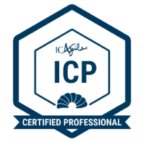"Our teams don’t need training because we have some experienced people who can explain it to the rest."
Wouldn’t it be marvellous if knowledge got shared like that? A few ‘evangelists’ gradually educating the whole workforce.
The problem is, these evangelists have often learned on the job, picking up practices, techniques and tools from others … who in turn learned it from some else. Who knows if what they are preaching is actually useful or toxic? Even if the message starts out sound, it can soon be transformed. I liken it to a bad game of ‘Telephone’, where players whisper the message from one person to the next, until the final message is some unintelligible wreckage of the original.
Unfortunately, everyone is unaware of the twisted version being passed around, so they continue to evangelise to others, spreading the distorted ideas to an eager crowd… who take these lessons as gospel… and go on to spread the distortion ever further.
As if this scenario isn’t bad enough, chances are there are multiple distortions going around at the same time, each group evangelising what they think is the truth. They use the same words as each other, but infer different meanings. They refer to the same practices, but hold conflicting ideas about how to use them.
It’s a sure-fire way to introduce dysfunction into any team. And it makes people feel rotten. They feel misunderstood because others aren’t getting their point. They feel angry because people are arguing against them. They feel embarrassed that they got it wrong.
The good news is: these kinds of misunderstandings can be significantly reduced if you follow our 6-step guide How to implement Agile successfully, particularly step 3 which advises “Get a shared understanding.”
For any organisation to function well, everyone needs to be playing by the same rules. This is why we say that ensuring there is an organisation-wide shared understanding of the basic approaches is essential to any Agile implementation.
Therefore, it’s no surprise that we put a lot of effort into our courses covering fundamental concepts and approaches. For example, our best-selling course, Agile Fundamentals, has been consistently reviewed and revamped over the last 7 years to make it as engaging and useful as possible.
What makes our training so good and so different?
Our courses are:
- Experiential: we cannot abide death by powerpoint so make all our courses experiential, enabling learning through hands-on participation
- Relatable: regardless of your industry (tech or non-tech) or organisation type (small, large, enterprise, public or private sector, startup), we make sure the content is relatable to what you are doing
- Applicable: we ensure that what you take away is useful to you! Learning the theory is all very good, but pointless unless you can apply it to something
- Taught using various learning approaches: we make our sessions exciting by engaging learners intellectually, creatively, emotionally and socially
- Led by active practitioners: our instructors have all spent years working in the field, getting their hands dirty. They bring this knowledge and experience with them to share.
Oh, and remember that Agile Fundamentals course I mentioned? It’s now ICAgile accredited for those who care about getting a certificate.







Need help choosing the right training for you?
The biggest problem for many organisations is working out what training is best for them. We get this. And it’s why we offer a free, no obligation call to discuss your training needs. One of our experienced trainers will discuss your requirements and identify the training that is best for you.
The call will be:
- free
- not obligatory (you don’t have to buy anything!)
- with one of our experienced trainers
- at a time to suit you
- up to 30 minutes long (but usually much shorter)
